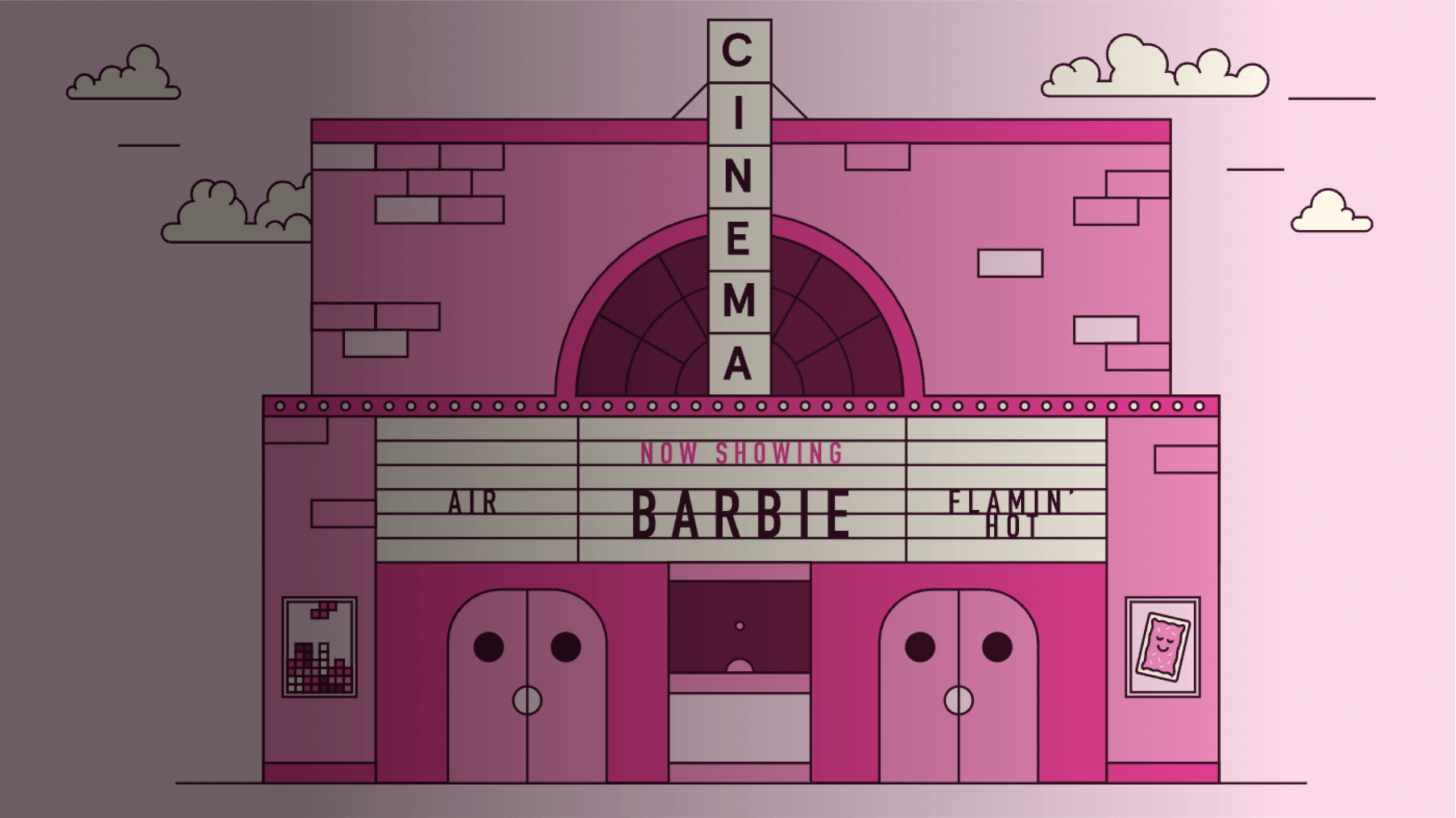Brands like Grand Turismo and Barbie are leveraging movies to revitalise their market share and connect with younger audiences. By associating their brand with popular movies, they can tap into their existing fan bases and generate excitement and interest amongst a new generation of fans.
This strategy not only helps to rejuvenate the brand image and increase visibility, but it also creates new opportunities for lucrative product tie-ins and collaboration. Additionally, movies provide a platform for in-depth storytelling and character development. This allows brands to engage with consumers on a much deeper level and establish stronger emotional ties.
The buzz that Barbie has generated is no coincidence. Mattel has spent upwards of $100 million on marketing Barbie this year. While the marketing department at Warner Bros. has been working flat-out for Greta Gerwig’s candy-coloured fantasy movie, with a marketing budget of around $150 million.
The Barbie movie marks the first big step in Mattel’s transformation from toymaker to an intellectual property-driven firm. This new vision for the business was set out by CEO, Ynon Kreiz, who joined in 2018. The year before, the company had made an operating loss of nearly $340 million and the bankruptcy of Toys ‘R’ Us was cited in Mattel’s financial results as having had a significant impact on revenue. In response, Kreiz’s strategy shifted away from retail and towards capturing the value of Mattel’s IP through more professional franchise management.
Greta Gerwig’s Barbie movie is the Mattel doll’s first live-action film appearance. It has successfully captured the cultural zeitgeist as millennials flock to post their best Barbie-inspired outfits on TikTok. A key factor has been a dizzying array of partnerships with products that range from a bright fuchsia Xbox to a $1,350 Balmain cropped hoodie, for Disposable Income Barbie. And that’s only scratching the surface of the brands that helped propel the movie to cult status before arriving in our cinemas at the end of July 2023. In Malibu and Berlin, there are even real-life Barbie Dreamhouses bookable through Airbnb.
Mattel has set out to breathe new life into its popular roster of brands, which alongside Barbie includes Hot Wheels, Thomas and Friends, and Uno. And it wants to do this by translating them to the big screen and in the process capture a new audience. The idea isn’t new, and the intersection of entertainment and the toy industry has been happening for years. However, a glance down the list of upcoming box-office releases suggests this strategy is undergoing a resurgence. Mattel alone has 45 films based on its IP at various stages of development. These include a horror-themed Magic 8 Ball movie, a project based on the purple dinosaur Barney, a heist flick based on the game Uno and a JJ Abrams-produced Hot Wheels film.
Lego is working on its third Lego movie and, following the box office success of Dungeons and Dragons, Hasbro has films based on its GI Joe, Beyblade, Monopoly, Action Man, Furby, and Cluedo brands in development. Brands are realising that if they can get people to spend 90 minutes with their IP while watching a movie, it could have a huge upside for sales.
At Hasbro in the early 2000s, the toy business first went through a similar pivot with the release of the robot-battling blockbuster Transformers. But this recent resurgence is the being accelerated by the decline of traditional advertising methods for toys. Where once toy companies could reach a guaranteed audience with television adverts during Saturday morning cartoons, younger audiences’ attention is now split between video games, social media, YouTube, and other on-demand video services. When the toy industry seeks to create that one-to-one relationship with children, one of the few ways to continue to do that is through creating its own content.
Another factor influencing this trend is the growing adult market for toys. By opening its IP to Hollywood, Mattel is playing heavily into the strength of nostalgia among a generation of adults that used to buy its products. That is not to say the shift is easy. The cost of producing a feature film with a full line-up of Hollywood A-listers is prohibitively expensive for most companies. But there are ways to structure deals or arrange payments that can help mitigate this.
It’s not just toy companies that are looking to capitalise on the benefits of movie tie-ins. Earlier this year, people flocked to watch Air, which charted the rise of Nike’s Air Jordan brand, and before 2023 is over, cinemagoers will be able to watch the story behind the development of Kellogg’s best-selling breakfast pastry in Unfrosted: The Pop-Tart Story, as well as Eva Longoria’s retelling of the creation of the ‘Flamin’ Hot’ Cheetos flavour.
The push for more brand-based movies is also coming from Hollywood studios. Although interesting corporate stories have been given the big-screen treatment before, from The Founder to Steve Jobs and The Social Network, there has been a glut of them this year, with Tetris, BlackBerry and Flamin’ Hot all released in 2023. Films based on existing IP carry another upside for Hollywood studios, which are increasingly having to work on tight budgets. The brands are often willing to push the film and market them to death, as we’ve seen with Barbie and Mattel, making it a lower risk option with a potentially much higher reward. Although Mattel appears to have struck gold by reimagining its Barbie brand for a millennial audience, not all CEOs should see the movie tie-in as the route to their own Malibu Dreamhouse.
